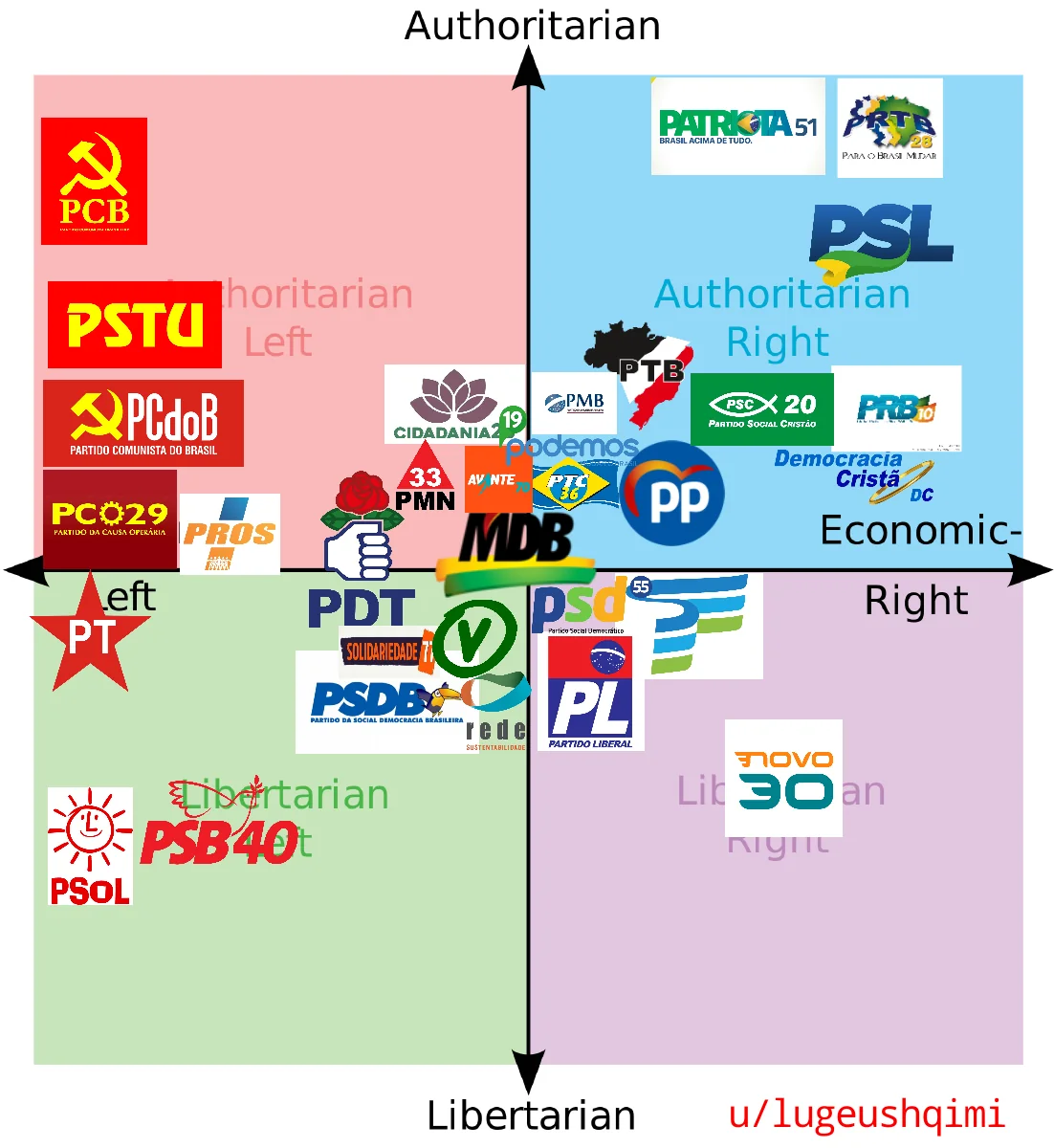(Opinion) Brazil’s political parties have experienced a notable shift in membership since the 2022 elections.
Of the 30 registered parties, 19 saw a decline in affiliates. The implications are significant and merit a deeper examination.
Eleven parties bucked the trend, registering growth. These include Podemos, Solidariedade, and others like Lula’s PT (Workers’ Party) and Bolsonaro’s PL (Liberal Party).
This information, drawn from Poder360’s analysis of TSE data, shines a light on the dynamic political allegiances within Brazil.
Scholar Maria do Socorro Sousa Braga anticipated this flux, attributing it to the pre-election period’s tendency to boost party enrollments, especially where internal divisions exist.
Podemos, in particular, almost doubled its membership, partly due to merging with another party.
Yet, it claims regular recruitment campaigns contributed too. Solidariedade also saw a 47% jump post-merger, crediting strategic party reorganizations at the state level.

Psol stands out for its organic growth, having no mergers. It now claims to represent a “renewed left,” resonating with new activists and social movements.
Former Psol president Juliano Medeiros ties their success to maintaining a critical yet supportive stance towards President Lula’s government.
Though modestly, Bolsonaro’s PL also increased in members despite high-profile campaigns led by Bolsonaro himself.
This growth was less than anticipated, hinting at potential challenges within.
Political celebrities play a significant role in these shifts.
For example, notable figures once aligned with Podemos have since departed, leaving Senator Soraya Thronicke as its leading member.
Solidariedade leans on trade union support despite not all its star politicians securing elected positions.
In Psol’s case, figures like Guilherme Boulos appeal to a demographic seeking a more radical left-wing stance.
Significant Membership Drops
On the other side, parties like PTB, MDB, and PDT saw significant membership drops. Some, like PTB, are exploring mergers to stabilize.
Maria do Socorro Sousa Braga suggests that older, larger parties often see more fluctuation in membership.
A broader trend of declining party affiliations since 2020 suggests shifting political landscapes in Brazil.
The total number of party affiliates has dropped from over 16 million to just under 16 million.
This ebb and flow of party memberships reflect Brazilian politics’ evolving priorities and strategies.
It underscores a critical need for parties to adapt, engage genuinely with the electorate, and revitalize their platforms to remain relevant in a rapidly changing political environment.

